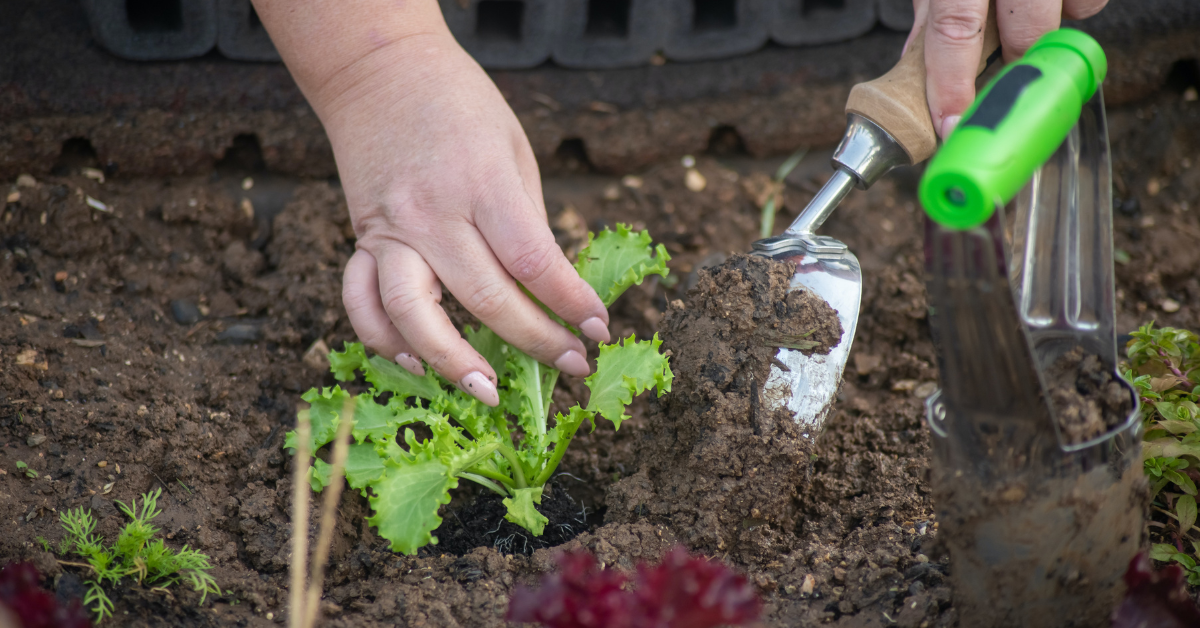
The application of clean and sustainable agriculture solutions is slowly but surely spreading in Lebanon. Despite the lack of the implementation of well-rounded national environmental and agriculture strategies, several organizations are trying to fill the gap in lobbying for policy, funding, and support.
Startups offering innovative solutions that tackle waste management and agriculture challenges continue to emerge. In addition, researchers are moving their work outside the lab, by offering commercialized solutions to an ever-growing list of agriculture challenges. The sector is not only pressured to feed the local population but to bring in fresh streams of revenue; by offering quality fruits and vegetables for export.
What is Biochar?
With the heavy reliance on imports for their production, farmers carry the load of the currency crash. Local substitutes for compost and fertilizers are rising as entrepreneurs work on leveraging organic waste as a precious raw material.
Biochar is an eco-friendly product made from organic and forestry waste. Its application in agriculture gives farmers bigger yields and more vigorous plants. In addition, it decreases the large bill Lebanon pays for importing chemical fertilizers and lessens the monstrous growth of illegal waste dumps.
Biochar is super charcoal made by heating any biomass – for example, corncob, husk or stalk, potato or soy hay, rice or wheat straw – without oxygen. All of the cellulose, lignin and other non-carbon materials gasify and are burned away and only pure carbon remains. This process is called pyrolysis.
Since the emergence of the waste crisis in 2015, Dr. May Issa has been working on transforming organic waste into biochar through research and experiments conducted at the Faculty of Agriculture at the Lebanese University.
After participating in the DAWERR Ideathon 2021 funded by United States Agency for International Development (USAID), she co-founded a startup named Biochar, which collects organic waste in the South of Lebanon in collaboration with local municipalities. The objective is to turn it into biochar, then provide it to farmers for a better agricultural production
Dr. Issa conducted experiments on local organic waste: bananas, potatoes, and oranges. Her work can also extend to tree waste, which, when collected and used as a resource, can significantly reduce the possibility of forest fires.
Dr. Issa’s biggest challenge remains to fund the growth of her operation, “We still can’t afford to buy the equipment to scale beyond the testing phase,” Issa mentions in an interview with Berytech.
Biochar Benefits in Agriculture Practices
Farmers using biochar benefit from bigger yields, healthier soil, lower acidity, better water retention, stronger plants, richer soil life, less contamination, higher fertility, and improved seed germination.
Biochar is unique compared to other organic fertilizers because it’s an organic carbon that absorbs harmful gases in the soil like carbon dioxide and ensures a better life cycle for agricultural areas and better wildlife for trees and other animals.
In a study published by Stephen Joseph, tests on avocado trees showed that using biochar led to a significant improvement in avocado seedling growth by 18 to 26% and a significant increase in fruit yield by 97% in the first three years after planting.
Producing Local Compost
Compost Baladi, a Lebanese startup co-founded by Marc Aoun, provides guidance, support, and management to guarantee optimal waste management operations in Lebanon. Its source-separated organic waste solutions help municipalities and farmers sustainably treat their bio-waste by adopting the proper techniques and best practices.
Their team provides training on composting at home and composting for businesses, as well as plant propagation and sustainable land management, pest identification, and biocontrol, aiming to improve the livelihood of farmers by reducing their costs and enhancing their contribution to sustainability.
The benefits of using organic compost in agriculture are many. Compost reduces, and in some cases, eliminates the need for chemical fertilizers, promoting higher yields of crops. It also improves moisture retention, soil structure, and porosity.
Compost Baladi offers waste drop-off services and treatment, sells equipment for organic waste composting and wood chipping/shredding, and provides advisory services. Their Earth Cube composter empowers users to overcome the space and manual work limitations of composting their organic waste. A bigger version, the Container Composter, is a decentralized bio-waste solution that has a standardized and modular system for different municipal settings.
Aoun elaborates on the benefits of the company’s decentralized model proving the size of the startup’s social and environmental impact: “By diverting organic waste from landfills, we reduce groundwater contamination and GHG emissions while saving municipalities significant sums of money. We also directly impact organic farmers by providing them with an affordable fertilizer based on nutrient-rich products, a substitute to conventional agricultural amendments mainly to sustain the farmer’s yield and income. We also provide them with the required technical knowledge to properly use the fertilizer.”
Biogas and Biofertilizer
According to Local Liban, the individual in Lebanon produces roughly 0.9 kilograms to one kilogram of waste on average every day, amounting to roughly 4500 tons to 5000 tons of garbage daily, half of which is organic.
To tackle that challenge, BIOwayste, a Lebanese startup co-founded by Reine Metlej, developed a decentralized enclosed system that allows the on-site conversion of organic waste into biogas and biofertilizer through a simple and natural bio-degradation process.
Sized like a regular washing machine, the system is used by several hotels, restaurants, and farms in Tripoli, Mansourieh, and Beirut. “We have taken the responsibility to help our community access revolutionary innovations that are easy to adopt and play a significant role in changing the negatively impactful habits they’ve practiced over decades. The challenge wasn’t easy, as the majority of solutions and initiatives over the years have been treating solid waste; the remaining waste produced by the community -being organic- has been left untapped with few shy attempts that remained insufficient, since it is misperceived to be unharmful to the environment and human health,” explains Metlej.
Biofertilizers are living microbes that enhance plant nutrition by either mobilizing or increasing nutrient availability in soils. They are required to restore the fertility of the soil.
While prolonged extensive use of chemical fertilizers degrades the soil and affects crop yield, Biofertilizers, however, enhance the water holding capacity of the soil and add essential nutrients such as nitrogen, vitamins, and proteins to the soil.
Impact of Valorizing Organic Waste
Apart from its impact on the environment, the valorization of organic waste has the potential to play a key role in the future of food and feed supply.
“Lebanon’s government is indeed short on funding, but strategies like sorting at source and valorizing biowaste can be part of a national solution to increase and improve food production. It will also encourage startups and entrepreneurs to put their skills to use for their country,” confirms Metlej.
This article is published under the Diverting Waste by Encouraging Reuse and Recycling (DAWERR), a five-year activity funded by the United States Agency for International Development (USAID) with the goal to establish sustainable and replicable integrated solid waste diversion and valorization solutions in rural areas. of Lebanon.









